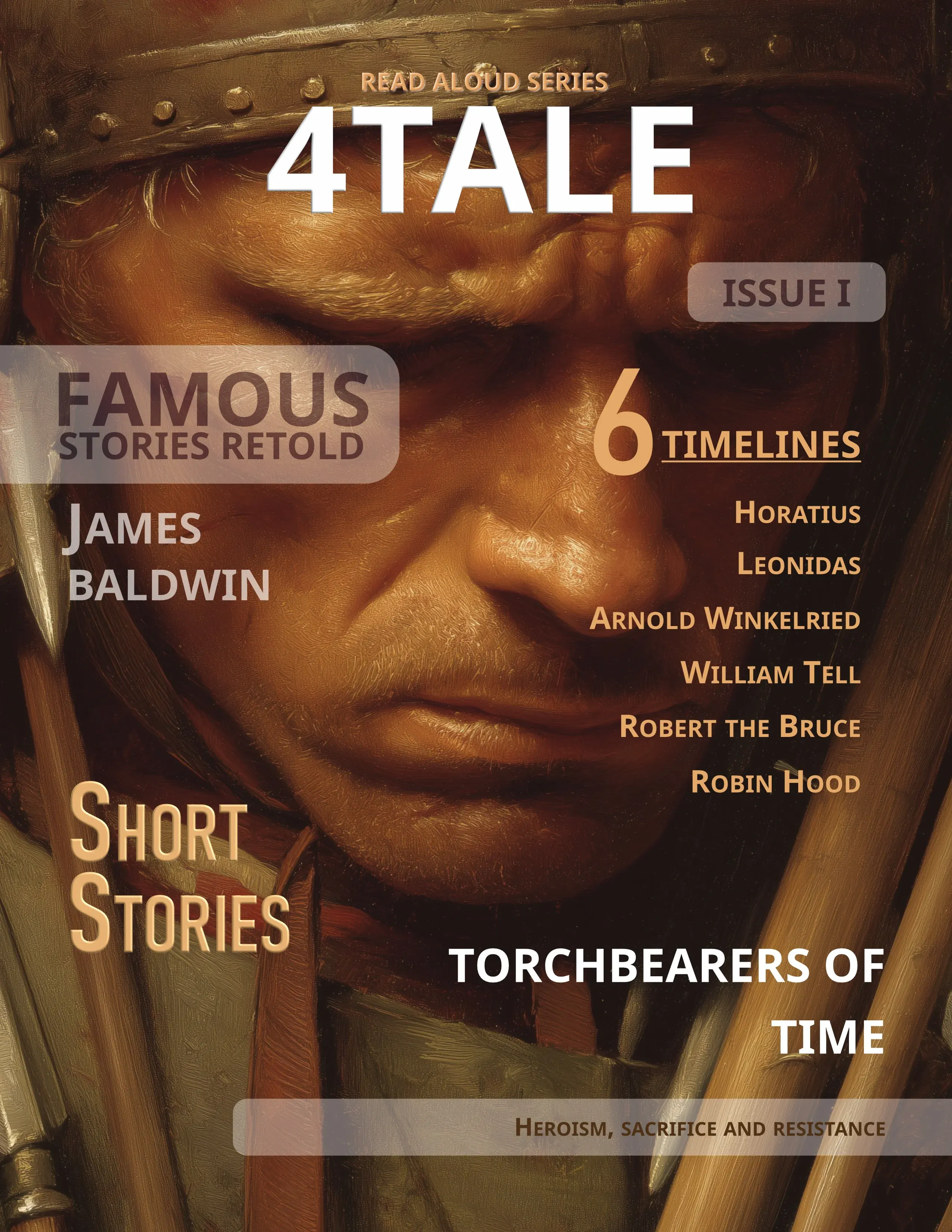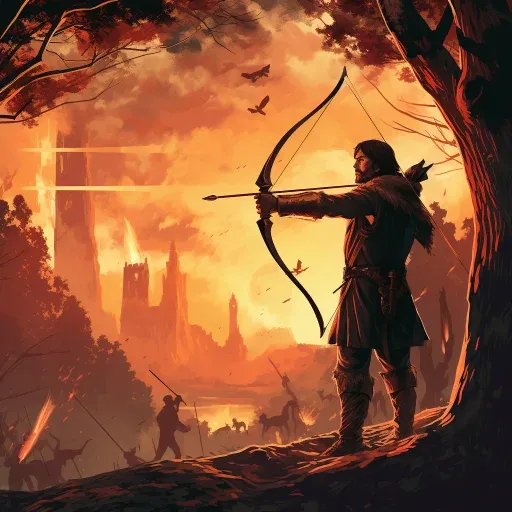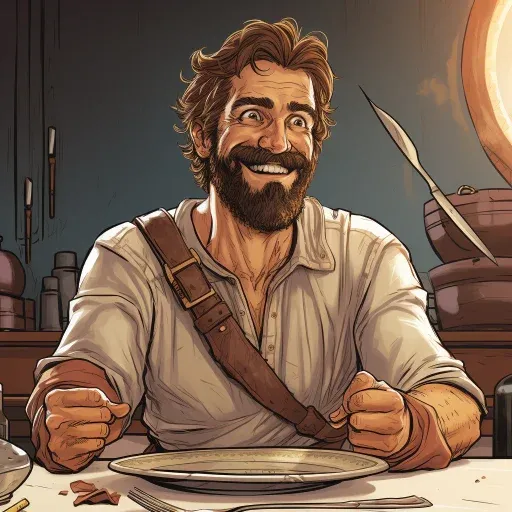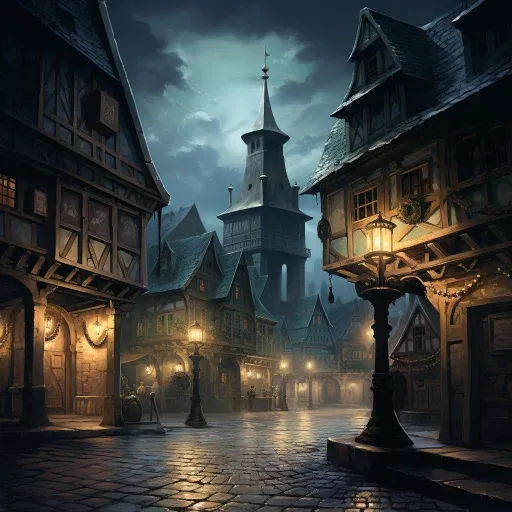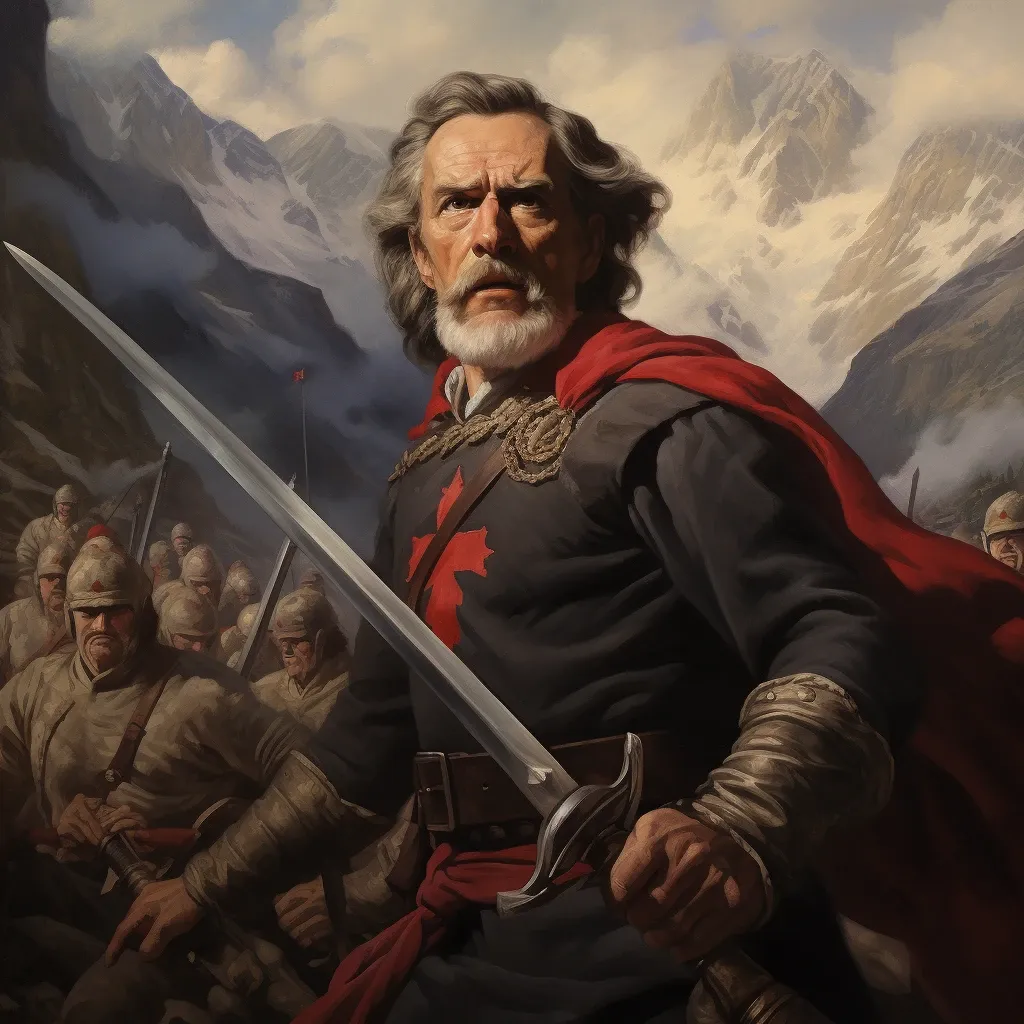
Heading

Heroic Sacrifice: Arnold Winkelried is celebrated as a Swiss hero who sacrificed himself to help his countrymen defeat an invading army.
Patriotic Act: His act of bravery is considered a symbol of self-sacrifice and patriotism in Swiss history.
A good book we like, we explorers. That is our best amusement, and our best time killer
- Roald Amundsen, Explorer
Arnold Winkelried: The Tale of Swiss Salvation
The epic story of a man who defied the odds, proving that even one person can change the course of history. Meet Arnold Winkelried, a humble man whose bravery and selflessness turned the tide in a war that threatened to devastate Switzerland. This remarkable tale of courage and sacrifice will reveal how a single act can inspire a nation and alter the trajectory of an impending invasion. A story that underscores the power of sacrifice, unity, and the indomitable spirit of freedom, it's a tale that will leave you marveling at the heroism of this unsung Swiss patriot.
The Impending Threat to Switzerland
As the ominous wave of a great army threatened to engulf the serene landscape of Switzerland, the nation teetered on the edge of a precipice. The prospect of foreign soldiers pillaging towns, robbing farmers of their livelihood, and reducing free people to the status of slaves was a chilling one. The Swiss knew the consequences of complacency; they were aware that any further advancement of the army would mean losing their homeland forever.
The Call to Arms: Swiss Men Prepare for Battle
The impending threat propelled men from the tranquil valleys and towering mountains of Switzerland to rally in defense of their land. Armed with whatever they could muster – bows and arrows, scythes and pitchforks, or mere sticks and clubs – they stood unified against their formidable foes. The enemy, however, presented an intimidating sight. Marching in unbroken lines, clad in shining armor and brandishing spears and shields, they seemed like an insurmountable force.
Podcast
The Unsuccessful Attempts to Break the Line
In the face of the enemy's daunting formation, the Swiss quickly realized the futility of their initial attacks. Arrows shot from bows were deflected by the soldiers' shields, and clubs and stones proved equally ineffective. The enemy moved forward, their spears gleaming in the sunlight, seemingly unaffected by the Swiss onslaught. The realization was stark and dreadful – unless they could break the enemy ranks, they stood no chance, and their beloved homeland would be lost.
Arnold Winkelried's Selfless Declaration
As the Swiss men stood against the impregnable formation of the enemy, a glimmer of hope emerged in the form of Arnold Winkelried. This brave soul, a humble man with nothing more than his courage, stepped forward, willing to sacrifice his life for the freedom of his country. His declaration echoed amongst the mountains, resounding with the nobility of his intent.
"Today, I give my life for my country," he proclaimed, stirring the hearts of his comrades. His words were not of despair but of determination. He urged his fellow countrymen to fight with all their might, promising that his sacrifice would not be in vain. His home and family, waiting for him on the mountain's side, would not see him return. But his sacrifice would ensure that they, and all of Switzerland, would remain free.

Winkelried's Heroic Charge and the Breaking of the Enemy Lines
With a cry for liberty, Arnold Winkelried charged into the enemy lines, unarmed and determined. His approach was met with a hundred spears, ready to impale him. But his sacrifice was not in vain. His daring act disrupted the enemy formation, causing confusion among the previously unflappable soldiers.
This brave man had no weapons in his hands, yet he was the first to break through the enemy's defenses. His audacious charge shattered the enemy's formation, creating an opening for his fellow countrymen. His friends, inspired by his courage, rushed in after him, snatching weapons from their foes and fighting with renewed spirit.
The Battle's Climax and the Salvation of Switzerland
The battle that ensued was unlike any other. It was a fight not just for survival but for freedom. The Swiss men, inspired by Winkelried's sacrifice, fought with a ferocity that matched their love for their homeland. They had no thought of fear, only the desire to protect their homes and their dear native land.
Despite the odds, they emerged victorious. Switzerland was saved, and the memory of Arnold Winkelried lived on, a testament to his sacrifice. His name became synonymous with bravery and selflessness, a beacon of inspiration for generations to come. Indeed, Arnold Winkelried did not die in vain – his sacrifice ensured the freedom of his beloved homeland.
Conclusion
In the face of unimaginable odds, Arnold Winkelried, a humble Swiss man, showcased extraordinary valor. His selfless act of bravery, charging into a wall of spears unarmed, disrupted the enemy formation, paving the way for Swiss victory. His sacrifice not only saved Switzerland from devastation but also underpinned the profound power of unity, courage, and the spirit of freedom. Winkelried's story serves as a timeless reminder that even a single act can alter the course of history, and that true heroism often lies in the willingness to sacrifice oneself for the greater good.

